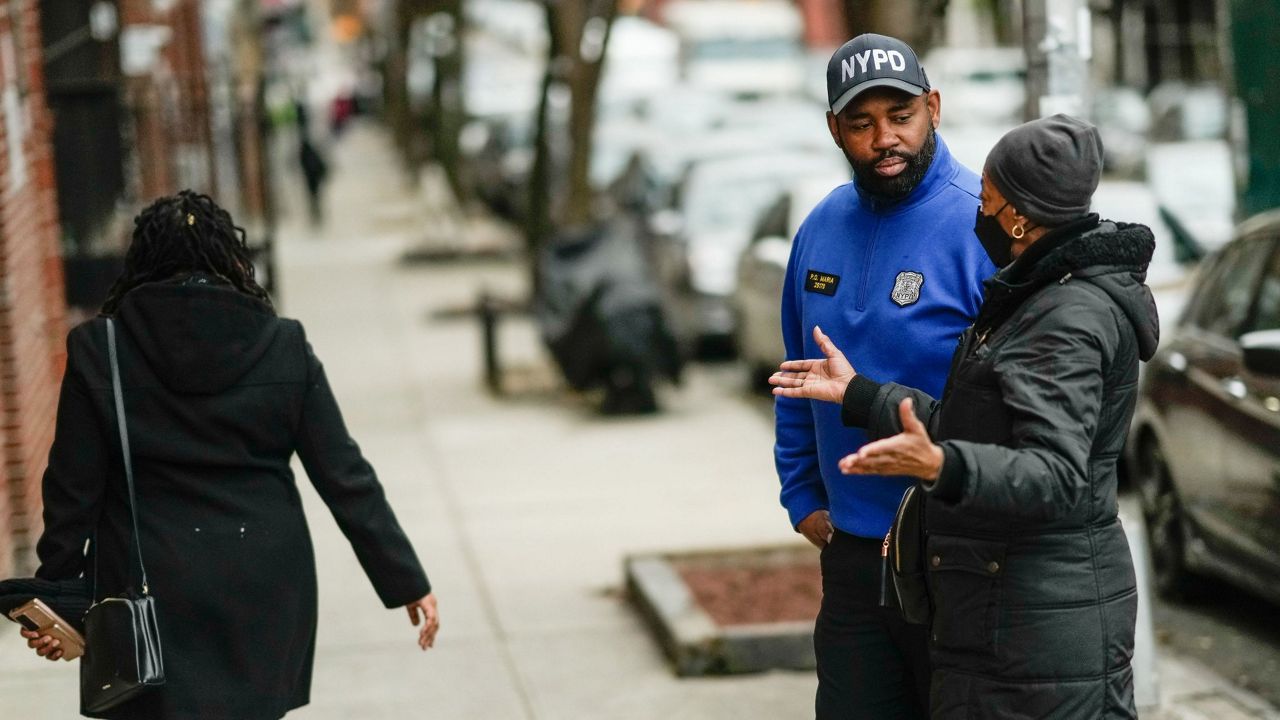Mayor Eric Adams on Friday announced he is vetoing the “How Many Stops Act,” a controversial piece of legislation that would require lower-level interactions between the police and civilians to be officially documented with paperwork.
What You Need To Know
- The legislation has become controversial in recent weeks, as Mayor Eric Adams has railed against the idea that police will be required to document more of their stops
- Adams said the bill is burdensome to police work. However, supporters say the bill is necessary to bring transparency and accountability to the NYPD
- The City Council intends to override the veto
The “How Many Stops Act” requires officers to fill out a similar form for a broader range of police interactions with the public, prompting officers to give details like age, gender and race. The exact form has yet to be rolled out.
The NYPD in 2022 recorded 15,102 stops, according to police data. Over 90% of those stops were of people of color, and among those stopped Blacks were disproportionately stopped by police, an analysis from the New York Civil Liberties Union shows.
The City Council passed the piece of legislation in December with a “veto-proof” majority, meaning the bill passed with enough support that the council could override Adams should he send it back to them.
Now that Adams has intervened, in order to make his veto stick, he would have to get a handful of City Council members who initially supported the bill to change their minds and refuse to override his veto.
During a news conference Friday morning, Adams repeatedly said his decision to veto the bill was not symbolic of a greater rift between himself and the City Council.
“I believe, and I want to be very clear on this, the City Council’s intentions were good intentions. There were parts of this bill that we agreed on,” Adams said. “In no way do I want anyone to think this is an anti-Council veto, or an anti-speaker veto. It is a pro-public safety veto that I am doing today.”
Shortly afterward, City Council Speaker Adrienne Adams and newly elected City Councilman Yusef Salaam issued a joint statement condemning the mayor’s move to veto the bill.
“It is deeply disappointing that the mayor is sending the message that Black and Latino communities do not deserve transparency regarding interruptions to their daily lives from investigative police stops,” the statement begins. “At a time when one out of every four stops made by the mayor’s new police unit has been found to be unconstitutional, and civilian complaints are at their highest level in more than a decade, the mayor is choosing to fight to conceal information from the public.”
Leading up to Friday’s veto, Adams stepped up his campaign against the bill, saying it would create burdensome paperwork for officers and effectively tie them to their desks and take them off the streets. His administration attempted to bolster their position by releasing a cartoon video on social media showing a police officer sitting at their desk completing paperwork while crimes take place outside.
Supporters of the bill, such as Public Advocate Jumaane Williams, said it adds a necessary level of transparency and accountability to police encounters.
“What we saw today was the mayor moving from misleading on the budget to misleading on policy,” Williams said.
Currently, police officers are only required to document “Level 3” investigative stops, defined as instances when there is “reasonable suspicion” the person stopped has committed or is committing a crime.
If passed, officers would also have to report so-called “Level 1 and 2” encounters.
“This is instructions on what to do and how to tag 'Level 1' and 'Level 2' stops. Some of the levels already ask for some of the information...we are asking for all of them,” said Williams in describing how the bill would work.
The public advocate said the information police would have to document is the race and gender of the individual.
Williams emphasized the bill states casual conversations aren’t part of the requirement.
As part of the bill, the city would need to rely on the police department to implement the change.
“The council doesn’t have the authority to direct the police department [on] how to achieve the bill. They have it. So we recommend you can either do it right after or as you're walking away or at the end of your tour,” Williams said. “If they choose to put forward the hardest way to do it, that’s on them, that’s not on us.”
Supporters argue the legislation adds necessary transparency and accountability to the police department.
A June report from a federal monitor found that 24% of “Level 3” stops were unconstitutional, and 97% of the individuals stopped were Black or Hispanic.
The City Council has already pledged to override the mayor’s veto.









